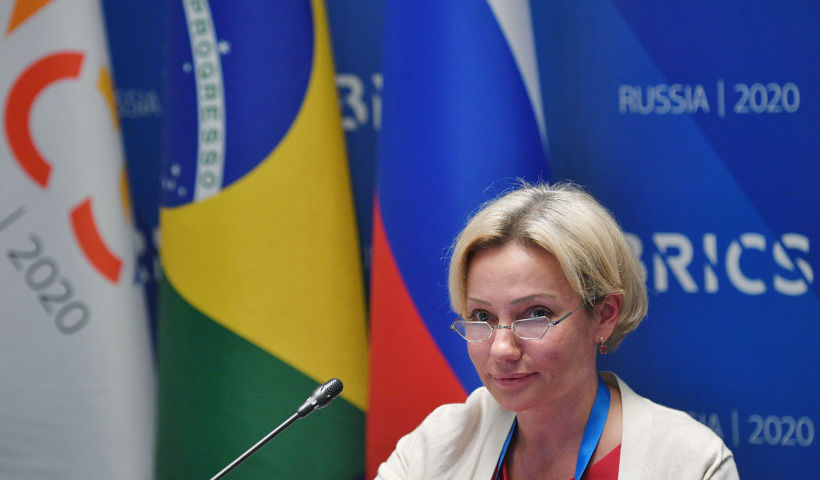BRICS Civil Forum started on 23 September.
Alena Peryshkina, Co-Chair of the BRICS Civil Forum, Director of the AIDS Infoshare Foundation, Co-Chair of the BRICS and G20 CSOs Working Group, spoke about the forum goals, tasks and expectations.
- Ms Peryshkina, the BRICS Civil Forum that has started today should address the topical issues of social development in the new era. As the Forum Co-Chair, what issues do you think should be discussed?
We took a lot of effort to develop the agenda for the preliminary consultations and the Forum programme to include a maximum number of the most urgent issues. This is why a draft recommendation compilation, which we will discuss on the sidelines of the Civil Forum and present to BRICS Sherpas, contains 30 pages, which is a lot for such a document. This shows that we will be facing a large number of challenges in the post-COVID-19 pandemic period.
As the Forum Co-chair, I see the following key questions: how we can promote the development of civil society institutions in BRICS countries and what can we do to ensure a constructive dialogue with decision-makers on the most important social issues? Only strong public institutions that are able to articulate the demand of the group they represent can ensure useful interaction with authorities and to express their interests. Efforts should also be taken to boost government representatives’ interest and desire to take part in consultations and pay attention to the demands of people. This is the main goal of our work during this process, and we appreciate the opportunity provided by Russia’s BRICS Chairmanship in 2020 and Russian Foreign Ministry for holding such a dialogue today.
- The health issue this year is absolutely fundamental. What opportunities does our cooperation open for BRICS countries’ citizens?
You are absolutely right. Issues related to the efficient organisation of healthcare systems, including epidemiological threat response systems, are of a paramount priority on the global agenda, as well as on BRICS agenda. As the Forum co-chairs, we closely followed the work on the recommendations of the Food and Healthcare Working Group. I know that our colleagues discussed a vast number of issues during the consultations, including access to fresh water, boosting food safety, prompt immunisation and vaccination, tackling lifestyle-related diseases, development of new medications, medical products, and diagnostic and medical equipment. All of these elements are vital for the public healthcare sector and for the work to treat serious diseases.
But the main issue today is how the BRICS countries can enhance their joint efforts to fight the COVID-19 pandemic and its effects. The BRICS countries must work together to improve methods for supervision, prevention and control over infectious diseases. They must use the group’s existing financial mechanisms to ensure stable financing of vaccine and medication development and research. We must cooperate in improving international medical and sanitary regulations to prevent biological threats and reduce the risks of drug-resistant infections in BRICS States, and, of course, take joint efforts to provide access to testing, vaccines and medications for every citizen in the BRICS countries.
- The paradigm of the modern world development has changed. How do you see main areas of our civilisation’s development in the new environment?
I’m afraid I don’t have an ingenious answer for you. It is obvious that digitalization is the main trend. It seems like all spheres of social interaction have become digitalized, which has only been facilitated by a difficult epidemiological situation we are facing this year. The increasing influence of social networks and new media, development of digital services and online trade, and projects to develop telemedicine – everything we started to speak about at the BRICS Civil Forum back in 2015 and everything we saw as prospects for decades to come, all this has already happened to us.
Technologies increase the pace of our lives and make decision-taking and implementation faster,boost the overall development of the civilisation; yet, they also entail certain risks and restrictions. We are only starting to learn how to live in a new digital world, to formalize this field, expand social and economic limits, rethink legal and ethical norms, and learn the rules of the game in the post-truth information space. Despite all the challenges, the new world offers us efficient tools for progress in achieving global development goals, which could be attained as early as by 2030.
